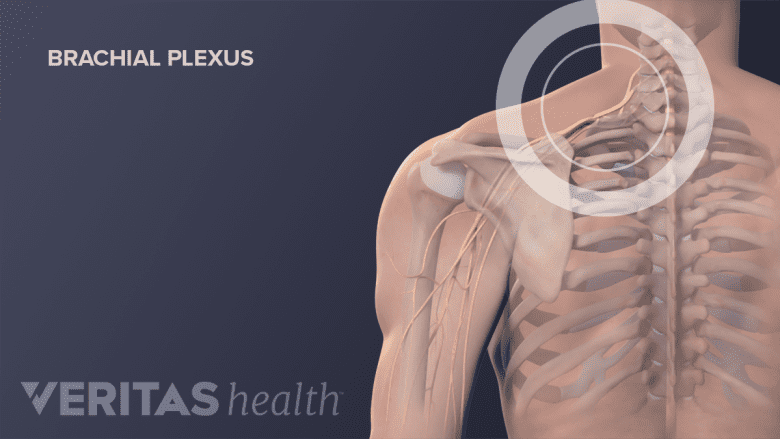In addition to joint dysfunction, myofascial pain syndrome, and thoracic herniated disc, which have already been reviewed in this article, chiropractic care may be a treatment option for additional upper back problems, such as thoracic joint dysfunction, thoracic outlet syndrome, and shoulder dysfunction related to the upper spine.
In This Article:
- Chiropractic Care of the Upper Back
- Chiropractic Treatment for Myofascial Pain Syndrome
- Chiropractic Treatment for a Thoracic Disc Herniation
- More Chiropractic Treatments for Upper Back Problems
- Chiropractic Adjustment of the Thoracic Spine (Upper Back) Video
Joint Dysfunction
The thoracic spine is a marvel of joint interaction and complex motion patterns. Composed of a total of 220 separate joints,1 it makes up the lion’s share of the 313 total joints in the entire spine. With this many interactive articulations it is easy to see that maintaining normal joint function, motion, and position is important. Chiropractors treat thoracic joint dysfunction with chiropractic adjustments.
There are a variety of chiropractic-adjustment techniques that can be used to adjust a dysfunctional joint:
- Most chiropractors employ manual adjusting techniques that utilize precise thrusting adjustments to help normalize joint function.
- Chiropractors can also use softer directional adjusting techniques or adjusting instruments to accommodate the needs of the patient.
Thoracic Outlet Syndrome

Thoracic outlet syndrome results from compression of brachial plexus nerves and vessels, causing arm pain.
Thoracic outlet syndrome (TOS) is a disorder in which the nerves of the brachial plexus and blood vessels are compressed. This compression can cause great pain and altered sensations such as a “pins and needles” sensation in the hands.
Treatment of thoracic outlet syndrome can include stretching, manual trigger-point therapy, and myofascial anchor-and-stretch release techniques to the affected muscles. Chiropractors may also include adjustments and postural instruction.
Thoracic/Shoulder Dysfunction
The function of the shoulder and the upper back are interrelated.Studies have shown that thrusting manipulations applied to the thoracic spine and ribs have reduced shoulder pain and dysfunction. Chiropractic adjustments to the thoracic region can be beneficial to certain types of shoulder dysfunction.
There are many causes and treatment options for thoracic spine disorders. Chiropractors have a wide range of treatment options for treating these conditions. Chiropractors are increasingly joining collaborative spinal care teams as a drug-free option for treating spinal and musculoskeletal conditions.

